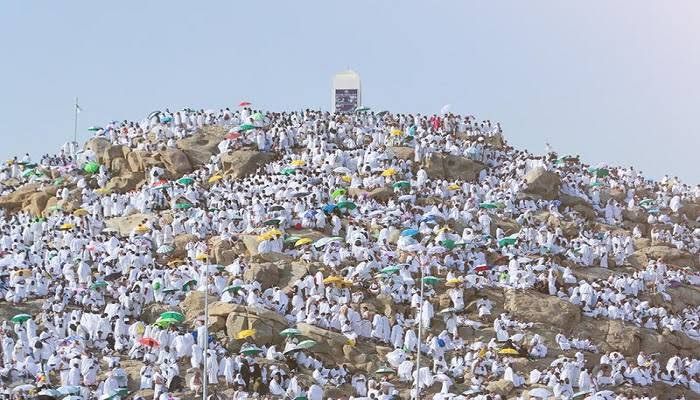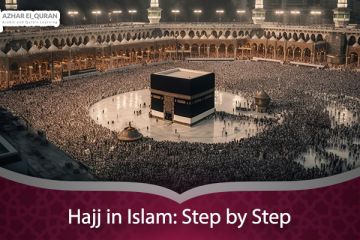

The Day of Arafah, known as Yawm Arafah in Arabic, is one of the most significant days in the Islamic calendar. It falls on the 9th day of Dhu al-Hijjah, the last month of the Islamic lunar year, and is the day preceding the major Islamic holiday of Eid al-Adha. This day holds immense religious significance for Muslims worldwide, whether they are participating in the Hajj pilgrimage or observing from their homes. Here, we explore the key virtues and significance of the Day of Arafah.
Aishah said that the Messenger of Allah (ﷺ) said:
"There is no day on which Allah ransoms more slaves from the Fire than the Day of ‘Arafah. He draws closer and closer, then He boasts about them before the angels and says: ‘What do these people want?"
قَالَتْ عَائِشَةُ إِنَّ رَسُولَ اللَّهِ ـ صلى الله عليه وسلم ـ قَالَ " مَا مِنْ يَوْمٍ أَكْثَرَ مِنْ أَنْ يُعْتِقَ اللَّهُ عَزَّ وَجَلَّ فِيهِ عَبْدًا مِنَ النَّارِ مِنْ يَوْمِ عَرَفَةَ وَإِنَّهُ لَيَدْنُو عَزَّ وَجَلَّ ثُمَّ يُبَاهِي بِهِمُ الْمَلاَئِكَةَ فَيَقُولُ مَا أَرَادَ هَؤُلاَءِ "
● A Day of Forgiveness and Mercy
The Day of Arafah is considered a day of immense forgiveness and mercy. According to Islamic tradition, it is a time when Allah forgives the sins of those who sincerely repent and seek His mercy. The Prophet Muhammad (peace be upon him) said, "There is no day on which Allah frees more people from the Fire than the Day of Arafah" (Sahih Muslim). This highlights the unparalleled opportunity for forgiveness that this day offers.
● Significance for Pilgrims
For those performing the Hajj pilgrimage, the Day of Arafah is the pinnacle of their spiritual journey. Pilgrims gather in the plain of Arafat, near Mecca, from noon until sunset, engaging in prayer, reflection, and supplication. This gathering is known as Wuquf, or standing, and is the most crucial ritual of Hajj. The Prophet Muhammad (peace be upon him) emphasized its importance by stating, "Hajj is Arafah" (Sunan Ibn Majah). Without participating in the standing at Arafat, a pilgrim's Hajj is considered incomplete.
● Fasting on the Day of Arafah
For Muslims not performing Hajj, fasting on the Day of Arafah holds great significance. The Prophet Muhammad (peace be upon him) mentioned that fasting on this day expiates the sins of the previous year and the coming year (Sahih Muslim). This act of fasting is a means of spiritual purification and drawing closer to Allah.
● A Day of Unity and Reflection
The Day of Arafah also symbolizes unity and equality among Muslims. Regardless of race, nationality, or socioeconomic status, all pilgrims dress in simple white garments (ihram), standing together in prayer and supplication. This collective act of worship underscores the universal brotherhood and solidarity of the Islamic faith.
● The Importance of Du'a (Supplication)
On this day, Muslims are encouraged to engage in extensive du'a (supplication), seeking Allah's guidance, forgiveness, and blessings. The Prophet Muhammad (peace be upon him) said, "The best supplication is the supplication on the Day of Arafah" (Muwatta Malik). This is a time for Muslims to reflect on their lives, seek forgiveness for their shortcomings, and make heartfelt prayers for themselves and others.
● Conclusion
The Day of Arafah is a day of profound spiritual significance in Islam. It is a time for Muslims to seek forgiveness, engage in sincere supplication, and reflect on their faith. Whether participating in Hajj or observing from afar, the virtues of this day offer a unique opportunity for spiritual growth and renewal. By observing the Day of Arafah, Muslims around the world unite in their devotion to Allah, reaffirming their commitment to faith and righteousness.












